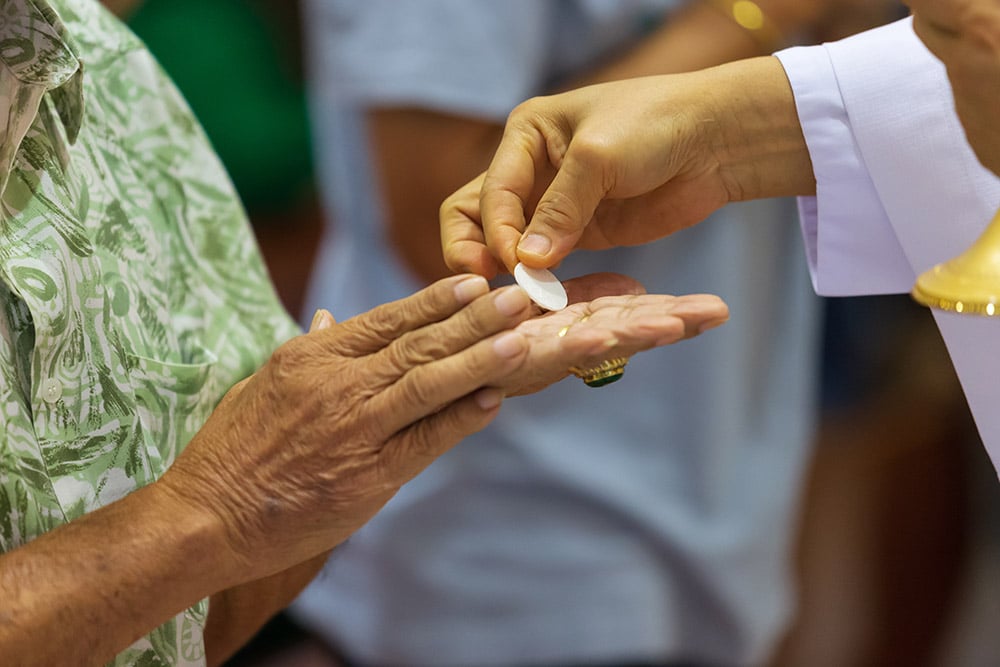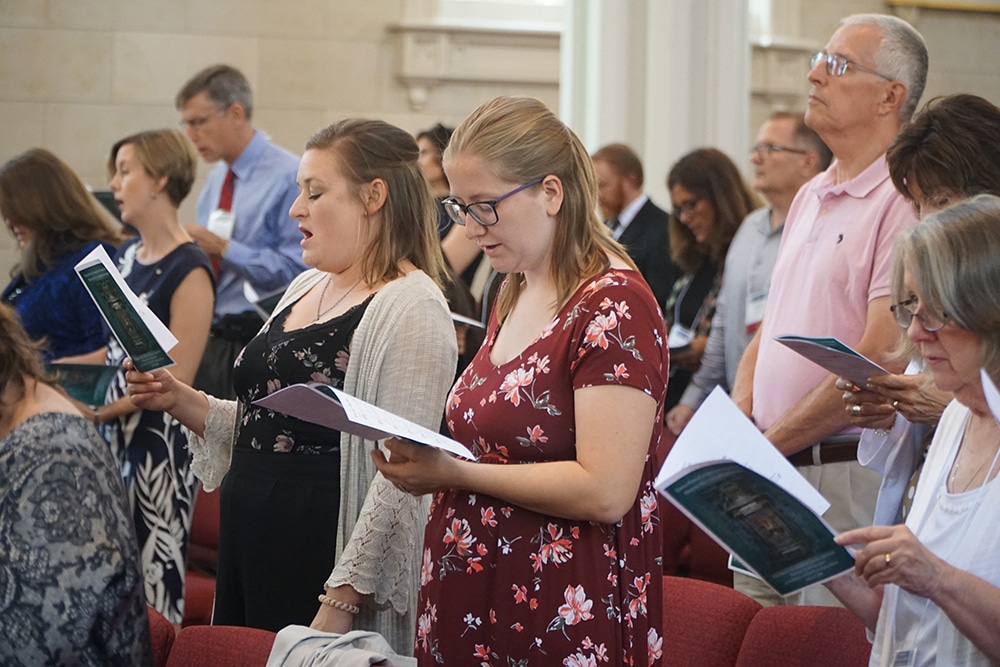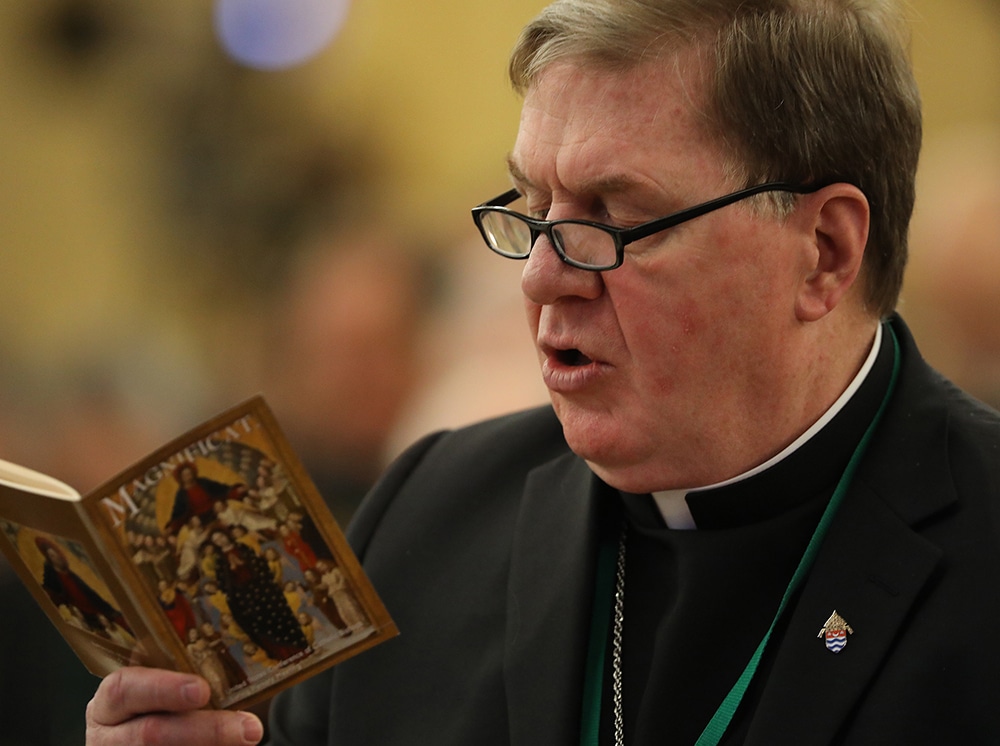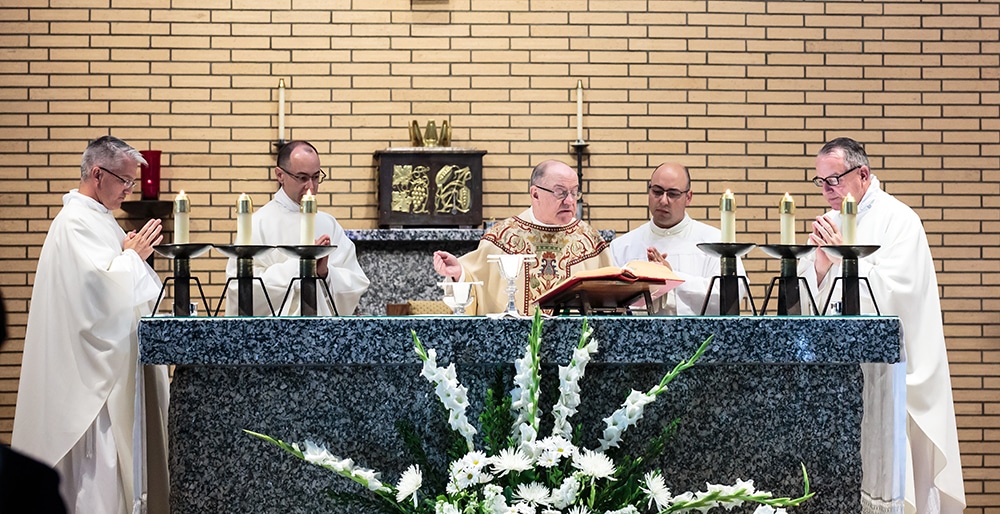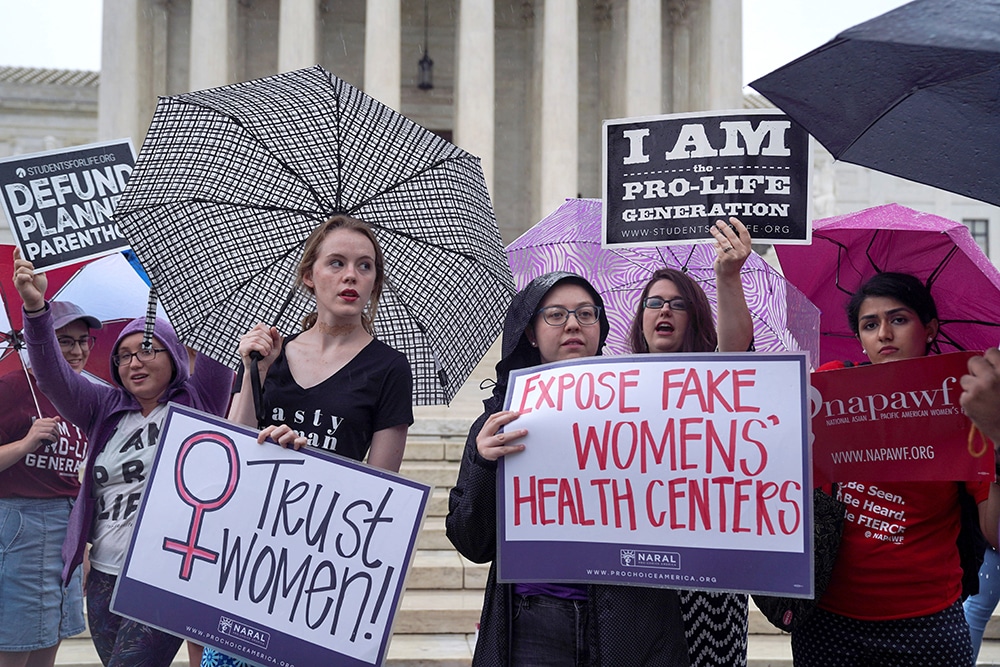Parents hauling backpacks and cardboard boxes into college dormitories is a common sight on “Move-in Day” in just about any college town in America.
But as soon as Mom and Dad wave goodbye, their college-aged children are on their own and ready to enjoy their newfound freedom. For many who are Catholic, that also means no longer being required to attend Mass with the family on Sunday.
“Coming into college, when you have all that freedom, your faith has to be something that is personal, not something that was forced on you by your parents,” said Simone Payette, a student at Stonehill College, a Catholic college in Easton, Massachusetts.
Payette told Our Sunday Visitor that the Catholic faith was an integral part of her life growing up, but she added that many of her peers never developed a personal interest or made the Faith their own. Many of them fell away from the Church when they went to college.
“The friends I know who are now involved in their faith, when they first came to college, their faith was something that had been forced upon them by their parents,” Payette said. “Someone builds a life of faith and a relationship with God because it’s something they want, and I think sometimes that takes a while to form.”
Lacking relationship with God
Pundits and religion writers have spilled gallons of ink to explain why millenials and college-aged young adults are increasingly deciding not to affiliate themselves with organized religion. There are many contributing factors that include the secularizing culture, the breakdown in communal bonds, a deep skepticism of institutions such as the Catholic Church and the general restlessness of youth, to name a few.
“In college especially, students who grew up in the Catholic faith may not have the personal desire to continue to grow, and they can fall into a lot of temptations,” said Caitlin McHenry, a student who is entering her third year at Quinnipiac University in Hamden, Connecticut.
For many, it can be tempting to blame easy targets such as left-wing professors for leading Catholic young adults astray. But interviews with practicing-Catholic college students, campus ministers and university officials suggest the problem is more complex, usually beginning years before a college freshman finds their way to the student union building on campus.
“The way these young people are introduced to the Catholic faith is broken,” said Father Christopher Vaccaro, the Catholic chaplain at the University of Mary Washington in Fredericksburg, Virginia. Father Vaccaro told OSV that before he became a chaplain, he assumed that most Catholic college students “slowly drifted out” after getting involved with the party scene or other activities.
“What actually takes place is when they come to school, they immediately stop practicing the faith. They won’t go to Mass one time. It occurs very quickly,” said Father Vaccaro, who believes that speaks to a reality where Catholic youth are not being well-formed in their home parishes.
“They’ve never really been introduced to the relationship that happens when one loves the Lord through the sacraments and the word of God,” Father Vaccaro said.
Campus ministers and Catholic university administrators agree that many college students become disengaged from a faith community, often because they do not know or understand the Catholic faith. That presents challenges for campus ministry programs and others who want to help the students better grasp what is a transitional time in life and in the spiritual journey.
“I think most kids come to college and need to do some sort of reflecting [about] themselves,” said Katie Jennings, the associate vice president for student engagement at The Catholic University of America.
“This is the first time for many of them being independent and making decisions for themselves,” Jennings told OSV. “The exploration of their faith comes at the same time as they’re exploring other aspects of their lives.”
Marquette University President Michael Lovell told OSV that the student body is generally broken up into groups of really devout students who frequently attend Mass and participate in other spiritual activities, students who are more casual and attend Mass but not necessarily every Sunday, and those who are almost completely disengaged from the Faith.
“It’s very important for us to think about how are we supporting all three of those groups in their faith journeys,” Lovell said. “We would hope that for our students, when they enter our campus where they are, that by the time they graduate, we will have exposed them to opportunities to grow in their faith and take advantage of the things that we do offer.”
Planting seeds
Franciscan Father Jude DeAngelo, the campus chaplain at The Catholic University of America, told OSV that first-year college students especially are dealing with “a lot of freedom at a fast pace.”
“We often have plenty of conversations at the end of our fall term with young people in their first year of college who say, ‘Hey, I want to come back. I want to make some changes. I want to reconnect with my faith,'” Father DeAngelo said. “So it’s not a hopeless situation. These are significant years in their lives where hopefully the seeds are again being planted. Their faith has to become their own. It has to be valued.”
To plant those seeds, Catholic universities and campus ministry programs offer a variety of services such as daily Mass, as well as initiatives that seek to offer a welcoming and friendly community where students can ask honest, searching questions and enjoy fellowship with other striving Catholics their age.
“The most important thing is finding people who share your faith, who share your values,” said Payette, who explained that she was more isolated in her freshman year, which caused her faith to become somewhat “stagnant.” That changed when she got involved in campus ministry as a sophomore.
“For me, a lot of the people who I have found are great influences for me are from the campus ministry at Stonehill,” Payette said.
Engaging the fallen-away
Michael St. Pierre, the executive director of the Catholic Campus Ministry Association, told OSV that campus ministry programs offer helpful environments for young people to work through their struggles. He said the best campus ministries “keep it simple,” with a strong emphasis on the sacraments and a few things that they do really well “over and over again.”
“They don’t chase the latest fads,” St. Pierre said. “One of the great stories in the Church today is the evidence that shows where there is an active campus ministry, it works and propels students into a life of discipleship.”
Lovell added that having sacred spaces on campus for students to quietly pray and reflect, crosses in the classrooms and other symbols of the Faith also help to remind students of Marquette’s mission as a Catholic Jesuit university.
“We also have a lot of different statues of saints around campus just so our students are reminded constantly that we are a Catholic Jesuit institution and those things are important to us,” Lovell said.
Away from home, often for the first time, some Catholic college students lose sight of the big picture and fall into the familiar pitfalls of partying, drinking and the casual sexual mores of the so-called “hook-up culture,” said Peter Nguyen, who leads a team of FOCUS missionaries at Harvard University.
“Students chase after these things believing it will give them fulfillment,” Nguyen told OSV. “Then their time is taken up by striving for success, by pleasure, by the work hard/play hard mentality. Faith begins to recede into the background of their minds, and there is often no one to call out that faith again for them.”
Nguyen and his fellow FOCUS missionaries often walk around Harvard Yard, chatting up students, inviting them to Bible studies and other activities. Ngugyen described interacting with Harvard undergrads who took a genuine interest in his faith journey, asking him questions even if they did not understand the reason for his devotion.
“Students desire something real,” Ngugyen said, “Something that is authentic and true.”
Brian Fraga is a contributing editor for Our Sunday Visitor.


